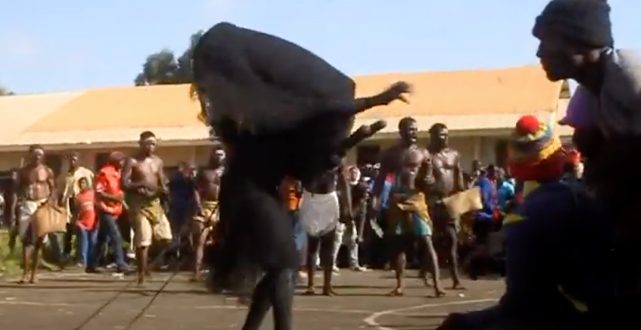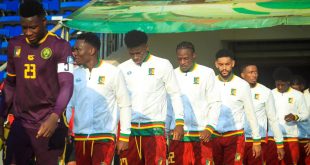CathNews | The Wimbum people in the Diocese of Kumbo, in the north-west of Cameroon, have petitioned the Vatican over an alleged “desecration of their culture by the Church”. Source: The Tablet.
In a letter addressed to the Dicastery for the Doctrine of the Faith dated July 17, Wimbum leaders said their cultural heritage was threatened by the Church’s “cultural appropriation” of their rituals.
“Recent actions by the Catholic Church have incorporated elements from our secret societies … into their processions. These processions are outright copyrights of our traditional sacred societies and artefacts,” they said.
“By appropriating our sacred practices within Church premises, Catholic priests inadvertently usurp the authorities of our kings.”
The appeal came days after the Nso people of the same diocese complained to Bishop George Nkuo of Kumbo of similar practices in their community.
Videos on social media show Church groups in the Wimbum and Nso communities employing traditional masquerades in their processions.
Tah Nformi Emmanuel Kongyu, a former pastor and who now practices traditional religion, said that the Church had had lived peaceably with traditional practices until recently.
“What’s happening right now is that the African traditionalists are protesting that the Church is overstepping their bounds in the practice of inculturation,” he said.
Fr Humphrey Tatah Mbuy, the director of communications for Cameroon’s bishops’ conference, said bringing practices such as masquerades into churches was not inculturation but “syncretism”.
“I don’t think we have even started applying inculturation,” he said.
Fr Eboka John, communications director for the Diocese of Mamfe in south-west Cameroon, said the inculturation of Christianity had several facets. “Inculturation means that we let the Gospel values shed light on culture,” he said.
He said this can only happen when Church leaders understand both Gospel values and the values of a particular culture.
He said Catholic priests were taught about African traditional religions in their training and formation.
 CameroonOnline.org Cameroon news, Actualité Camerounaise, live Web TV & Radio, World News and a lot more
CameroonOnline.org Cameroon news, Actualité Camerounaise, live Web TV & Radio, World News and a lot more




